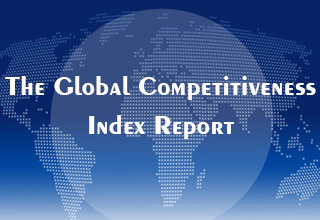India expected to be among top 5 manufacturing nations by 2020: Report
Updated: Dec 07, 2015 04:17:16pm

Meanwhile, the United States is expected to capture the top spot as the most competitive manufacturing nation in 2020, pushing current leader China into the second position, said a Deloitte press release.
The prediction is based on an in-depth analysis of survey responses from more than 500 chief executive officers and senior leaders at manufacturing companies around the world.
The country index rankings are included in a preview of findings released at the Council’s annual National Competitiveness Forum held on 4 December, 2015.
“The 2016 Global Manufacturing Competiveness Index shows the importance of policy, investment, and innovation for company and country level competitiveness,” says Deborah L. Wince-Smith, president and CEO of the Council. “Its findings help companies shape their business strategies in order to compete successfully, and create jobs.”
Kumar Kandaswami, Senior Director, Deloitte India said, “The 2016 Global Manufacturing Competiveness Index provides important insights on global innovation trends, and highlights the challenges faced by businesses in maintaining or improving their manufacturing competitiveness. India is, however, well positioned to take advantage of its younger population segment to make it to one of the world’s most manufacturing competitive nation by 2020.”
The ability of the United States to take the top spot may be largely due to the country’s investment in research, technology and innovation, which enhances the competitiveness of its industries and drives economic development, according to the study Advanced Technologies Initiative and Innovation, a 2015 report also published by Deloitte Global and the Council.
Kumar Kandswami further added, “A strong, innovative and technology-savvy manufacturing base leads to long-term economic prosperity and growth. The top eleven countries will remain consistent between now and 2020, although with some exchange of rankings. The report also suggests that the BRIC countries (Brazil, Russia, India, and China) – with the exception of China – seem to have lost their allure as highly competitive manufacturing locations today based on the views of executives responding to this study.”
According to the 2016 Global Manufacturing Competitiveness Index, the top eleven countries will remain consistent between now and 2020, although with some exchange of rankings. In addition to China and the United States retaining the top two spots, Germany and Japan will remain at third and fourth respectively. India, currently 11th on the list, is expected to jump up to as high as fifth place. South Korea, Canada and Singapore are expected to drop one spot each due to India’s rise, while Taiwan and the UK are each expected to drop two spots. Mexico, meanwhile, is expected to move up from eighth to seventh.
The next nine spots, however, show how the industry anticipates that developing markets will continue to mature and become more formidable over the next five years. Malaysia is expected to rise from 17th to 13th, Vietnam from 18th to 12th, and Indonesia from 19th to 15th. Conversely, European nations including Switzerland, Sweden, Poland, and the Netherlands are expected to drop as many as six spots in their ability to compete.
In addition to the country ranking, the report preview identified the top drivers of manufacturing competitiveness. Talent was the leading driver, with access to skilled workers widely seen by executives surveyed as the most important factor, followed closely by the cost of wages and materials. Productivity of the workforce rounded out the top three. The availability of a quality local supplier base was a distant fourth.
“Talent continues to be the most critical element of global manufacturing competitiveness," says Tim Hanley, Deloitte Global Leader for Consumer and Industrial Products Industry group. "This is consistent with the sentiments of senior executives that we have surveyed worldwide over the years. It underscores the changing nature of skills needed as manufacturers increasingly adopt advanced technologies to innovate their future products, services and business models.” (KNN Bureau)












